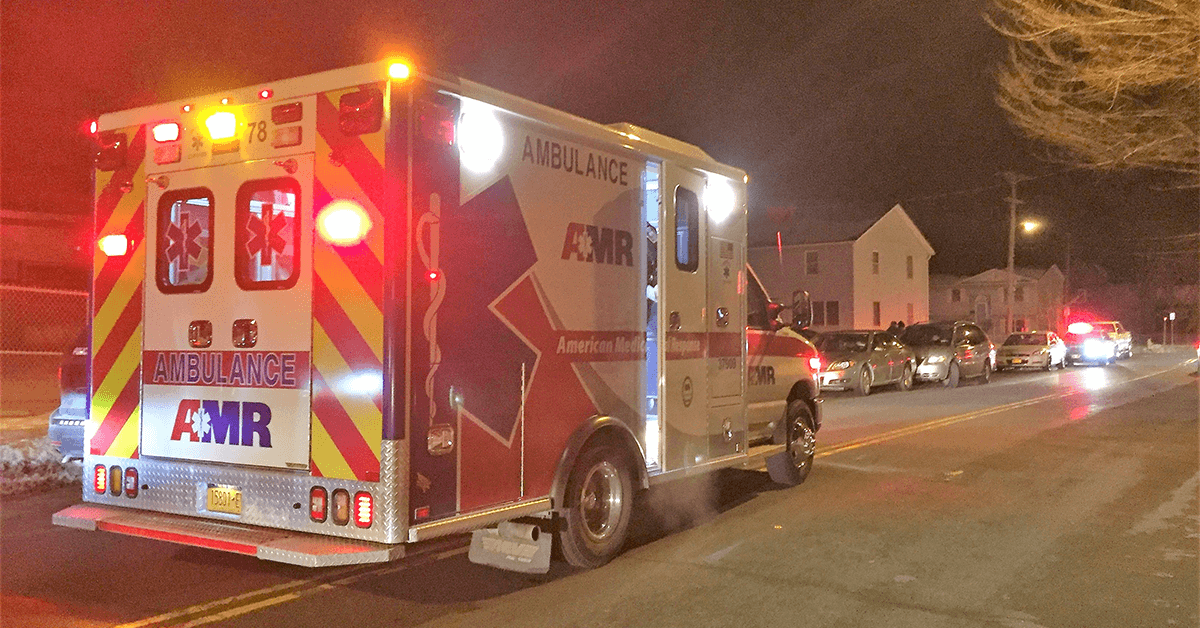Affordable Prices Propel Michigan to Top of Cannabis Market

Michigan has become the leading cannabis market in the United States in terms of units sold, surpassing even California, according to data from market intelligence firm BDSA. Since late 2022, Michigan consumers have purchased more packages of cannabis products, including gummies, pre-rolls, and grams of flower, than those in California. This shift is significant, given California's population is nearly four times larger than Michigan's.
The primary reason for this trend is the price difference between the two states. While California's cannabis market generates more revenue overall—over $5 billion last year compared to Michigan's $3.06 billion—cannabis products are significantly cheaper in Michigan. For example, a one-gram pre-roll of the Cookies' Ridgeline Lantz strain costs $17.50 at Dr. Greenthumb's Cannabis dispensary in Los Angeles but only $7 at Gage Cannabis in Ferndale, Michigan.
California's higher prices are largely due to its taxation system. The state imposes a 15% excise tax on cannabis sales in addition to state sales taxes that range from 7.25% to 10.75%. Municipalities can also add local taxes, pushing the total tax rate on cannabis purchases up to 38% in some areas. In contrast, Michigan has a 10% excise tax and a 6% sales tax, with no additional local taxes allowed.
These high prices in California discourage consumers from transitioning from the illicit market to the legal one. California has long been a major supplier of illegal cannabis, and the established black market continues to thrive, presenting a significant challenge to the legal market.
Michigan's rapid legalization and market expansion also played a crucial role in its current standing. The state legalized recreational cannabis in late 2019, with an approach that allowed for unlimited state-level licensing. This policy enabled swift growth in cannabis production, leading to an oversupply that caused prices to plummet from $494.77 per ounce in February 2020 to $88.15 in May 2023.
This price drop has made legal cannabis competitive with, and often cheaper than, illicit market cannabis, driving more consumers to purchase from legal sources. In May 2023, Michigan's cannabis industry sold over $278 million in recreational cannabis, and the state is on track to exceed $3.2 billion in sales for the year.
While other states like Colorado and Washington have seen declines in cannabis sales, Michigan's market continues to grow. A report from Oregon-based Whitney Economics indicates that over 75% of cannabis sales in Michigan occur within the legal market, compared to only 44% in California. This discrepancy suggests that California's overall cannabis market is worth more than $11.5 billion annually, while Michigan's is around $4 billion.
Despite Michigan's current success, it is unlikely to maintain this position indefinitely. California is already making efforts to address its market issues, including reducing or suspending local marijuana taxes to boost sales and considering regulatory changes. While the future of California's cannabis market remains uncertain, it is expected to stabilize and potentially reclaim its dominance.
For now, Michigan's cannabis industry can celebrate its achievements and focus on sustainable growth to maintain its market position. However, stakeholders should be prepared for changes as other states, especially California, work to resolve their market challenges.
Free Cannabis Storage Bags Now Available at Monroe County Health Department

Locking cannabis storage bags are now available for free at the Monroe County Health Department, located at 2353 S. Custer Road. These bags can be picked up from 8 a.m. to 5 p.m. on weekdays.
These bags are designed to protect children and pets from accidental cannabis ingestion.
"Although medical and recreational cannabis is legal in Michigan, it is important that adults in possession of cannabis take steps to keep the substance locked up in a safe place," the health department emphasized in a recent news release. "Locking bags provide a way to store cannabis safely away from children and pets who may inadvertently ingest a cannabis product, which can put them at risk of serious health effects."
In addition to distributing the storage bags, the Monroe County Health Department will be airing radio and television advertisements over the next few months to promote safe cannabis use and storage. This initiative is funded by the Marijuana Operation and Oversight grant from the Cannabis Regulatory Agency within the Michigan Department of Licensing and Regulatory Affairs.
A national study published in "Pediatrics" reported that in 2017, there were slightly over 200 cases of accidental consumption of cannabis edibles by children under six years old in the U.S. By 2021, this number had surged to 3,054, marking a 1,375% increase, according to the Monroe County Health Department.
"The Michigan Poison and Drug Information Center recorded a 75% increase in cannabis toxicity among children aged five and younger from 2020-2022. Meanwhile, cases among children aged four to 13 grew by 60% from 2020-2023," the health department stated.
In cases where an individual experiences physical or mental distress following potential cannabis exposure, it is crucial to call 911 or seek immediate medical attention. The Poison Control Center is available at 800-222-1222. For further information, visit healthymonroecounty.com.
Key Issues Highlighted at June 13th Michigan Cannabis Regulatory Meeting

At the recent Michigan Cannabis Regulatory Agency (CRA) public meeting on June 13th, several significant developments and concerns were discussed. These range from budget approvals and enforcement measures to public comments on various issues affecting the cannabis industry.
[youtube=tAVqFc9afUI]
Budget Approvals and Laboratory Developments
Michigan's House, Senate, and Governor's office have largely agreed to the CRA's budget requests. A notable development includes the establishment of a reference laboratory, which will fall under CRA authority. This lab will play a critical role in enforcement cases, lab testing audits, and the creation of better standards and practices within the cannabis industry.
Sales Trends and Caregiver Data
The meeting highlighted contrasting sales trends in the cannabis market. Recreational sales have reached an all-time high over the past three months, while medical cannabis sales are at their lowest levels historically. The state currently has 7,700 registered caregivers.
Enforcement and Inspections
The CRA has bolstered its enforcement capabilities with 15 full-time agents who manage 150-200 complaints monthly. Between March and May, the agency conducted 956 inspections across 748 businesses. Additionally, there are 239 active social equity license operators in the state.
Public Comments: Key Issues and Concerns
The public comment section of the meeting featured a diverse array of viewpoints from industry stakeholders and community members:
-
Aspergillus Testing: Josh Smith, representing Therapeutic Health Choice, argued against mandatory Aspergillus testing for recreational cannabis, referencing his experience in Oregon. He contended that while medical cannabis might benefit from such testing, recreational cannabis does not require it due to naturally occurring spore levels in the environment.
-
Transportation and Compliance: Lindsay Fen, representing Emerald Secure Transportation, raised concerns about arbitrary time limits and rejections, which could potentially disrupt their operations.
-
Fines and Enforcement: Eric Colandrea, counsel for LaHaze Grow in Cheboygan, expressed frustration over a $6,000 fine for failing to test employee samples, highlighting the financial strain such fines impose on smaller businesses.
-
Organic Standards: A caregiver named Theo Gantos advocated for certified organic standards for cannabis, suggesting that Michigan could lead in this area under CRA guidance.
-
Market and Enforcement Issues: William McKenzie, CEO of Heritage Farms, discussed market cycles and the impact of out-of-state conversion oil on prices. He claimed that a significant portion of the market is affected by illicit oil and called for stronger enforcement measures.
-
Conversion Oils and Safety: Several commenters, including representatives from DSP Machine, a cannabis attorney named Nicholas Galindez, and Josh Swaider from Infinite Analysis Labs, emphasized the dangers of conversion oils. They noted that these oils, often produced out-of-state, compromise consumer safety and called for stricter enforcement and testing.
-
Local Government Corruption: Liz Bennett from Penn Township accused local officials of corruption in the cannabis industry, suggesting that the state should oversee the collection of taxes and license fees to prevent malfeasance.
-
License Fees: A small-time operator from Northern Michigan, Kelly Young, requested a reduction in renewal fees, criticizing the state for enabling larger out-of-state investors to dominate the market at the expense of small local operators.
-
Testing and Fraud: Marco Troami, a consultant specializing in cannabis lab setups, highlighted the issue of hemp conversion oils and testing fraud. He advocated for the development of tests to distinguish genuine cannabis oil from synthetic compounds and suggested implementing a secret shopper program to audit lab results and restore confidence in the regulatory system.
Looking Forward
The meeting underscored the complexity of managing Michigan's growing cannabis industry. From improving lab standards and enforcement to addressing market dynamics and ensuring safety, the CRA faces numerous challenges. However, the collaborative efforts between state authorities and industry stakeholders aim to create a more robust and reliable cannabis market in Michigan.
Camden Dispensary Burglars Receive Probation and Fines

Three teenagers from Battle Creek involved in the burglary of a cannabis dispensary in Camden on January 31st have been sentenced under the Holmes Youthful Trainee Act to probation and fines.
Dontay Dequan Banks, 19, Milton Tyier Hudson, 18, and Jeramiah Javon Smith, 18, appeared in the 1st Judicial Circuit Court on June 10 for sentencing after pleading guilty to breaking and entering a building with intent to commit larceny. Their plea deal resulted in the dismissal of more serious charges, including conspiracy to commit breaking and entering, receiving and concealing a stolen motor vehicle, third-degree fleeing/eluding police, and resisting arrest.
A fourth individual involved, Treshaun Omeirr Boykins, 23, is scheduled for a continued criminal pretrial conference on July 1st, with a jury trial set for September on all five charges. Authorities suspect Boykins was the getaway driver.
According to a police report, Michigan State Police responded to a commercial building alarm at The Pinnacle Emporium, located at 421 S. Main St., in the early hours of January 31st. Upon arrival, officers found four men and a juvenile in a 2018 white Kia parked at the scene.
The suspects fled, leading police on a high-speed chase south into Ohio, then west into Indiana, with speeds exceeding 100 miles per hour. The pursuit re-entered Michigan in southern Branch County, where the vehicle was eventually stopped using a PIT maneuver near Calhoun County.
After the vehicle was immobilized, the suspects fled on foot but were quickly apprehended. The juvenile was released to his parents, while the four men were initially held at the Branch County Jail before being transferred to the Hillsdale County Jail.
Judge Megan Stiverson, during the arraignment, highlighted that none of the men had prior criminal records and mentioned the new Community Corrections Program in Hillsdale County.
Economic Growth in Mt. Pleasant Driven by Cannabis Retail

Mt. Pleasant has become a thriving center for cannabis retail, with 11 dispensaries opened in 2023 and four more planned. This growth has made cannabis sales a booming industry in central Michigan.
What Attracts Cannabis Sellers to Central Michigan?
We spoke with local cannabis industry professionals and city officials to understand why central Michigan, particularly Mt. Pleasant, is an attractive spot for cannabis businesses and how this influx of dispensaries impacts the town.
Economic Benefits and Urban Revitalization
The presence of these dispensaries has brought substantial economic benefits to Mt. Pleasant. According to Aaron Desentz, Mt. Pleasant city manager, the cannabis industry has spurred job creation, filled vacant buildings, initiated new constructions, and contributed to the city's budget through shared revenue.
"From job creation and wrap-around employment opportunities, to the revitalization of vacant buildings and new construction, and the addition to the city's budget from shared revenue, the growth has positive impacts in the community," Desentz explained.
Dispensaries have transformed old buildings into state-of-the-art facilities, improving the town's aesthetics and infrastructure. Matt Roman, director of government relations for Stash Ventures, emphasized their commitment to upgrading existing spaces. "We take traditional lower-use existing buildings and turn them into state-of-the-art facilities," Roman stated. He noted that their dispensaries, including Timber Cannabis Co. at 212 W. Pickard Street, aim to impress with their secure and welcoming environments.
Stash Ventures operates 17 dispensaries in Michigan, with headquarters in Mt. Pleasant. Roman highlighted their approach of not seeking incentives or tax abatements, focusing instead on community enhancement.
Community Contributions and Recognition
Lume, another prominent player in Mt. Pleasant, constructed two new buildings in 2021. Both locations, at 907 E. Broomfield and 1207 North Mission, received community beautification awards from the Mt. Pleasant Planning Commission.
In 2023, Mt. Pleasant added nearly $300,000 to its budget from the state's cannabis tax revenue. Michigan communities that opted for adult-use cannabis sales received over $87 million in revenue for 2023, with each eligible municipality and county receiving over $59,000 per licensed retail store and microbusiness.
Rapid Market Growth
The cannabis industry in Michigan has seen explosive growth. Desentz noted that marijuana sales revenue skyrocketed from $10 million in 2020 to $87 million in 2023. He anticipates Mt. Pleasant's share of revenue to increase as more dispensaries open.
In May 2022, the Mt. Pleasant City Commission removed license caps for marijuana businesses, allowing for more rapid growth. "After watching the first few retailers open for a year, the City Commission felt comfortable with the sustainability of the market," Desentz said. This decision also resolved legal disputes over license caps.
Employment and Community Engagement
Cannabis retailers have also bolstered the local employment base. Stash Ventures employs nearly 70 people, most of whom are full-time local hires. Lume has 25 employees across its two stores. Both companies are committed to community involvement and philanthropy.
Lume engages in various local events and supports initiatives like the annual Polar Plunge for Special Olympics and Habitat for Humanity fundraisers. "We are members of the community. We live and work here and are always looking for ways to get involved and give back," said Laurie Ralston, Lume area manager.
Stash Ventures, through its philanthropic arm Higher Hopes, has donated over $180,000 to local nonprofit organizations since 2020. The company involves its employees in selecting causes to support, ensuring their efforts have a meaningful local impact.
Market Sustainability and Future Outlook
Despite the rapid increase in cannabis retailers, concerns about market saturation remain. However, Roman is not worried about added competition, expecting some consolidation and price adjustments. Stash Ventures recently expanded by purchasing 11 stores from Cloud Cannabis, bringing their total to 17.
Lume, the largest single-state operator with 38 locations, remains committed to its long-term presence. With modern facilities and knowledgeable staff, Ralston believes in their sustained success.
Conclusion
The growth of cannabis dispensaries in Mt. Pleasant has brought economic benefits, revitalized urban spaces, and created jobs. As the industry continues to expand, the town remains optimistic about the future, focusing on sustainable growth and community involvement.
Man Allegedly High on Cannabis Runs Down Elderly Couple in Branch County

A man from Coldwater Lake is being held on a $1 million bond for allegedly using his pick-up truck to run down an elderly couple in Branch County's Kinderhook Township on Monday night while reportedly high on cannabis.
McCain Matthew Snyder, 22, faces two counts of assault with intent to murder after allegedly running over the grandparents of a girl he was reportedly stalking. Each charge carries a potential life sentence. Branch County Prosecuting Attorney Zach Stempien also charged Snyder with failure to stop at the scene of an accident resulting in serious bodily impairment, a felony punishable by up to five years in prison.
According to police, Snyder drove his Ford Ranger truck onto the grass as he was leaving Simco Drive, striking 81-year-old David Sluyter and his 77-year-old wife, Jill, near their home. The couple was reportedly on their way to Snyder's mother's house to confront her about accusations Snyder had made against them.
Earlier that evening, Snyder had visited the Sluyters' home in the Shawnee Shoals subdivision, accusing them of sexually abusing the girl he was allegedly stalking. Before leaving, he reportedly warned the couple, "I'll be back."
Jill Sluyter suffered internal and head injuries, including a fractured pelvis and back. David Sluyter sustained serious leg fractures, and there is a possibility he may require amputation of his left leg below the knee. He was flown by medical helicopter to Parkview Hospital in Fort Wayne, Indiana.
The Michigan State Police reported that after the crash, Snyder drove to a friend's home on Central Road, where troopers located him and took him into custody. Snyder's father informed troopers that his son had recently begun smoking large amounts of cannabis, writing on the walls, and obsessing over Biblical passages.
Snyder's father also stated that his son "swore up and down" that the Sluyters were child molesters. However, the girl denied any assaults had taken place and said she did not have a relationship with Snyder.
Approximately two hours before the hit-and-run, around 5:30 p.m., troopers encountered Snyder parked at the State Police Post on State Street in Coldwater. At that time, he claimed he was trying to ensure he wasn't being hunted down. Troopers noted that Snyder did not appear to be a threat at that moment.
A probable cause conference for Snyder is scheduled for June 25, with a preliminary exam set for July 2nd, 2024.


 Helpful Links
Helpful Links